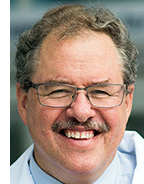Durable remissions with tisagenlecleucel in children and young adults with relapsed or treatment-resistant acute lymphoblastic leukemia (ALL)
ELIANA is a phase 2 pivotal study of tisagenlecleucel in pediatric/young adult patients with CD19+ relapsed or refractory B-cell acute lymphoblastic leukemia (ALL) and represents the first global clinical trial evaluating CAR-T cell therapy. Previously, a single infusion of tisagenlecleucel was found to induce a complete remission (CR) or a CR with incomplete blood count recovery (CRi) in 81% of patients. Updated results of this study, with 11 months of additional follow-up continue to confirm the efficacy of this treatment in this setting, with high overall remission rates (ORR) and deep remissions, in combination with a median duration of remission (DoR) and overall survival (OS) that was not yet reached.
In order to be eligible for the ELIANA trial, patients with CD19+ relapsed/refractory B-cell acute lymphoblastic leukemia (ALL) had to be 3 years or older at screening and not older than 21 years at diagnosis and have at least 5% leukemic blasts in their bone marrow. Tisagenlecleucel was centrally manufactured at 2 sites (Morris Plains, NJ, USA and Leipzig, Germany) by lentiviral transduction of autologous T-cells with a vector encoding for a second generation 4-1BB anti-CD19 CAR and expanded ex vivo. Tisagenlecleucel was then provided to patients at 25 study centers in 11 countries on 4 continents using cryopreserved apheresed mononuclear cells. The primary endpoint of the trial was ORR within 3 months after the CAR T infusion maintained for at least 28 days. Secondary objectives of the trial included DoR, OS, safety, and cellular kinetics.
In total, 113 patients were screened and 97 were enrolled. There were 8 manufacturing failures (8%) and 10 patients (10%) were not infused due to death or adverse events (AEs). A total of 79 patients were infused with a single dose of tisagenlecleucel (median dose 3.0×106 CAR-positive viable T-cells/kg), following lymphodepleting chemotherapy in most patients (76/79). The median age of patients in the study was 11 years (range 3-24 years) and 61% of them underwent a prior hematopoietic stem cell transplant (SCT).
The ORR (CR + CRi) within 3 months was 82% and among the 65 patients with a CR/CRi, 98% achieved minimal residual disease (MRD) negativity in the bone marrow. The median DoR was not yet reached, with ongoing responses in 29 patients (maximum DoR: 29 months and ongoing). Also the median relapse-free survival (RFS) was not yet reached, with an 18-month RFS rate of 66%, dropping to 62% at 24 months. Relapses tended to occur early (within the first year) and the majority of these relapses were CD19-negative. Of note, all CD19-negative relapses occurred in the context of persistent B-cell aplasia. At 12 and 18 months, 76% and 70% of infused patients were still alive, respectively.
Seventy-seven percent of patients experienced grade 3 or 4 cytokine release syndrome (CRS), which is triggered by an over-reactive immune response. Nearly half of these patients required treatment in the intensive care unit for a median of seven days. All cases were ultimately reversed using the management algorithm developed for this study. The majority of key adverse events occurred in the first eight weeks after infusion and included infection (43%, 24% grade 3/4), cytopenia that not resolved by day 28 (42%, 36% grade 3/4), neurological events (39%, 13% grade 3/4) and tumor lysis syndrome (5%, all grade 3). No cases of cerebral edema were reported. In total, 25 deaths were recorded after CAR T infusion, mostly due to disease progression and other causes unrelated to CAR T-cell therapy.
In conclusion, these updated ELIANA data further underline that tisagenlecleucel offers a new option for pediatric and young adult patients with relapsed/refractory B-cell ALL. The investigators also indicated that relatively similar results were obtained across the different study sites, even in centers with no prior experience administering CAR T-cell therapy.
Reference
Grupp S, Maude SL, Rives S, et al. Updated analysis of the efficacy and safety of tisagenlecleucel in pediatric and young adult patients with relapsed/refractory acute lymphoblastic leukemia. Presented at ASH 2018; Abstract 895.


